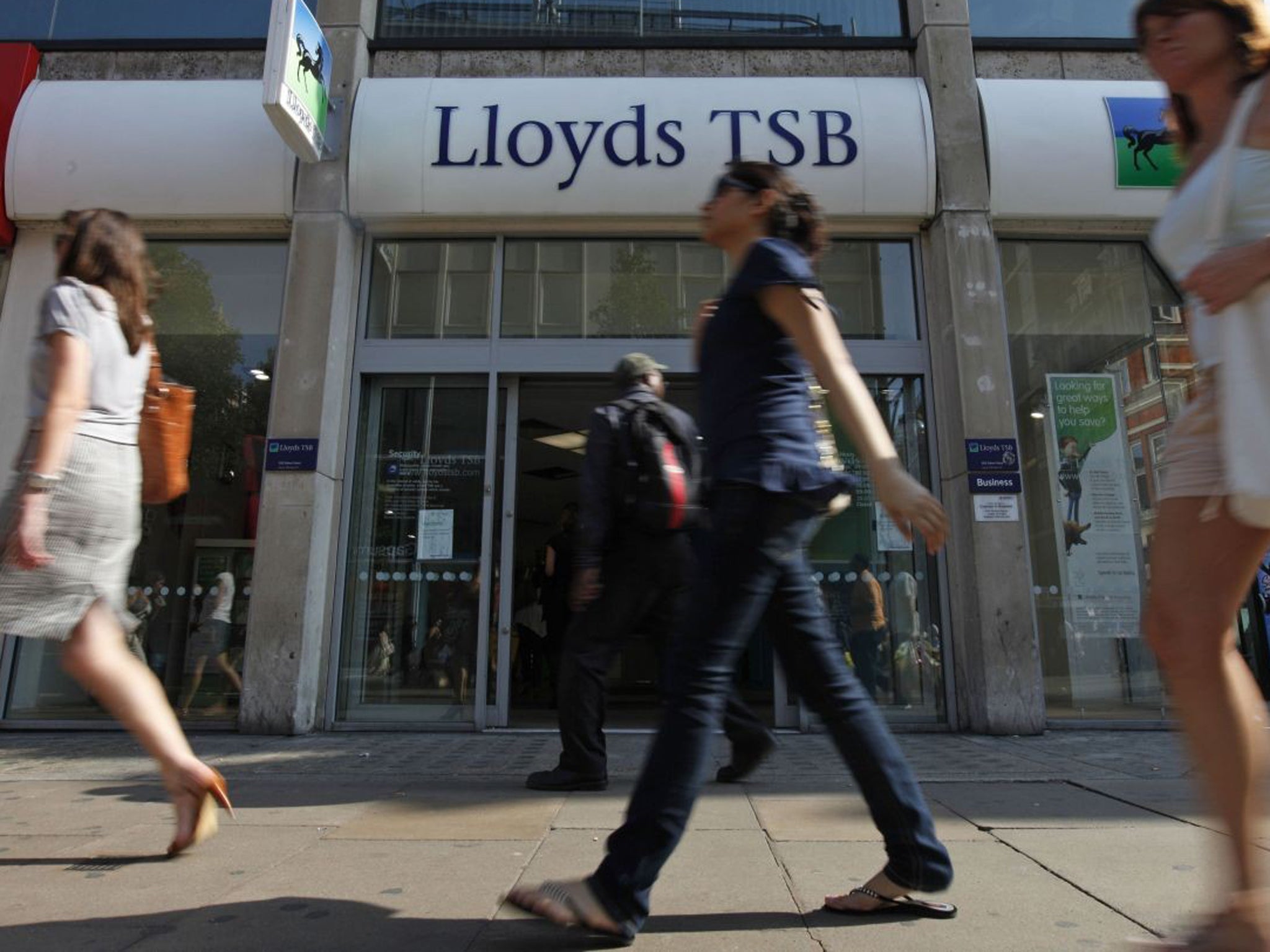Lloyds slashes overdraft fees. Now FCA must press rest of industry to follow suit
High overdraft charges have subsidised ‘free’ in-credit banking for too long

Your support helps us to tell the story
From reproductive rights to climate change to Big Tech, The Independent is on the ground when the story is developing. Whether it's investigating the financials of Elon Musk's pro-Trump PAC or producing our latest documentary, 'The A Word', which shines a light on the American women fighting for reproductive rights, we know how important it is to parse out the facts from the messaging.
At such a critical moment in US history, we need reporters on the ground. Your donation allows us to keep sending journalists to speak to both sides of the story.
The Independent is trusted by Americans across the entire political spectrum. And unlike many other quality news outlets, we choose not to lock Americans out of our reporting and analysis with paywalls. We believe quality journalism should be available to everyone, paid for by those who can afford it.
Your support makes all the difference.Just days after Financial Conduct Authority chief executive Andrew Bailey raised concerns about overdraft charges in a speech, Lloyds, Britain’s biggest retail bank, has acted.
A swathe of fees and charges imposed on those who go into “unauthorised overdrafts” by breaching pre-agreed limits are to be dropped.
From November 2017 the bank will instead impose a simple daily charge based on how much its customers borrow, and for how long. Which, really, is how it ought to be when you’re borrowing money.
The importance of this move goes beyond a simple story of banks, and charges, and regulators, because it amounts to a small victory against the grotesque unfairness that plagues British society.
The charges imposed by banks for “unauthorised” overdrafts subsidise “free” banking for those of us fortunate not to need to go overdrawn.
Of course, current accounts aren’t actually free – banks get to lend out the money customers hold on deposit in them while paying little or no interest.
However, the profit margins on the product are still low. So, to keep their shareholders in the style to which they have become accustomed, they have for years cross-subsidised a marginally profitable product by imposing punitive charges on customers who go into overdraft. Especially when these are so-called “unauthorised overdrafts”.
These can sometimes be more expensive to the consumer than even payday loans.
Just how profitable they are to banks can be seen in the examples Lloyds has provided to illustrate how much its customers will save via its new policy.
For example, a Halifax Reward current account holder who goes overdrawn by £100 up to their planned limit of £100 for ten days, but by a further £50 for two of those days, will currently pay £18 as a result. When the new flat rate daily charges of 1p for every £7 borrowed come into force that will be down to £1.40.
Will this mean current account customers who stay in credit paying more (or getting less)? It needn’t. This is a very profitable bank that can absorb the hit. And, remember, it will still make money off overdrafts. Just a bit less.
Lloyds can be a fusty, bureaucratic and slow-moving beast. For it to move so quickly on this issue in response to a speech, as opposed to waiting for Mr Bailey to bring the hammer down with a review into short-term credit pending, is quite surprising. It shows the lights are on in someone’s office at HQ.
Some customers will end up losing out via the ending of free buffers on some accounts that allowed people to go overdrawn by £25 or £50 without paying anything for short periods. But, given that the new policy will potentially save the vast majority of customers quite a bit of money (Lloyds puts the average overdraft at £450) the change is very welcome.
It is particularly important at a time when household budgets are being squeezed, with the latest official figures showing wage growth falling while inflation remains stubbornly high.
As Which? said, in response, it’s now on the FCA to pressure the rest of the industry to follow suit. That is, if this move by the industry’s biggest player doesn’t do that by itself.
Join our commenting forum
Join thought-provoking conversations, follow other Independent readers and see their replies
Comments